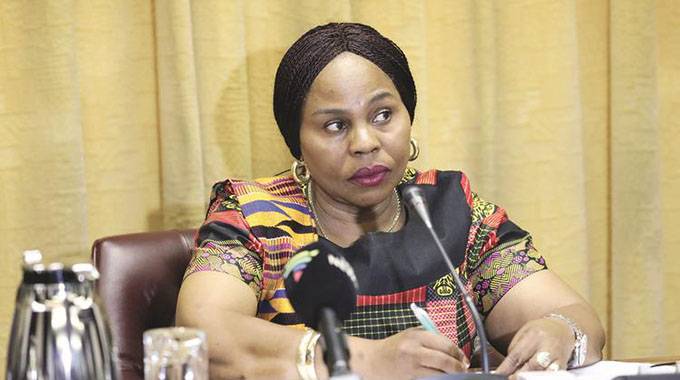“Support for small businesses critical”
Government has implored key stakeholders to provide vital support to Micro, Small and Medium Enterprises (MSMEs) as the sector continues to play a crucial role in Zimbabwe’s economy, contributing over 60 percent of the country’s economic activity.
MSMEs continue to be a cornerstone of the local economy which explains the need to allocate the essential support and resources needed to empower and foster the development of the sector.
Statistics according to an MSME survey conducted by Finscope in 2021, show that the segment employs around 4,8 million people on a full-time basis with the majority being women in rural areas.
These people are employed in various sectors of the economy covering manufacturing, retail, transportation, mining, energy, construction and services, among many others.
Recently the Government indicated that it will be capitalising on some financial institutions to increase their capacity to support and empower small to medium enterprises initiatives.
This is intended to curb difficulties, including those of working capital, through the development of customer-centric financial products and financing options that meet the needs of women, youths and smallholder enterprises.
Generally, the initiative strives to upscale marginalised communities and small businesses through wealth creation projects that will help in generating better employment opportunities.
Financial support to smallholder enterprises will stimulate entrepreneurship development for entities dotted across the country.
According to the recent FinScope survey, MSMEs are a critical component of Zimbabwe’s economic growth as they now contribute up to US$8, 6 billion to the national GDP.
“The MSME sector is, however, constrained by several factors in their business operations such as lack of business management skills, mentorship, coaching and access to markets, workspace, and access to affordable finance which is one of the major obstacles that hinders SME growth. Some lenders view SMEs as high risk due to lack of collateral security making it difficult for them to secure the capital they need to invest, expand and compete.
“This lack of access to finance and lack of essential business development services stifles their potential and hinders their contribution to the economy,” said Women Affairs, Community, Small and Medium Enterprises Development Minister Monica Mutsvangwa, while addressing delegates attending the Zimbabwe Smart Township and Rural Opportunities Forum in Harare.
Minister Mutsvangwa said forging financial partnerships can bridge the gap between SMEs and the resources they need to invest given that linkages provide access to capital, mentorship and resources enabling SMEs to scale up and thrive.
She observed that there is potential through collaboration amongst financial institutions, government and other stakeholders to create tailored financing solutions for SMEs.
Entrepreneur specialising in the furniture business, Lincoln Garai, commended the government support for emerging businesses arguing funding is a key factor in establishing a successful venture as operations demand funding to come up with a good output.
He mentioned that his specific line of work required sufficient funding to meet capital needs for materials and labour.
“Funding is a critical factor in upscaling youth-driven enterprises but banks need to be considerate when it comes to funding youth-owned businesses. Many have good ideas but they have suffered stillbirth given the inability to access funding due to banks’ prohibitive requirements,” said Garai.
Bulawayo Chamber of SMEs Programmes coordinator, Nketa Dhlamini said; “The general appeal to government is to assist by setting up structures, building structures, to accommodate the micro, small, medium enterprises so that they are housed properly, especially those into production.
“The other plea is access to market and access to cheaper sources of finance, because expensive finance destroys businesses, especially new enterprises.”
Traditional funding institutions, such as banks, have consistently overlooked this essential sector in favour of larger commercial and industrial projects.-ebsinessweekl









